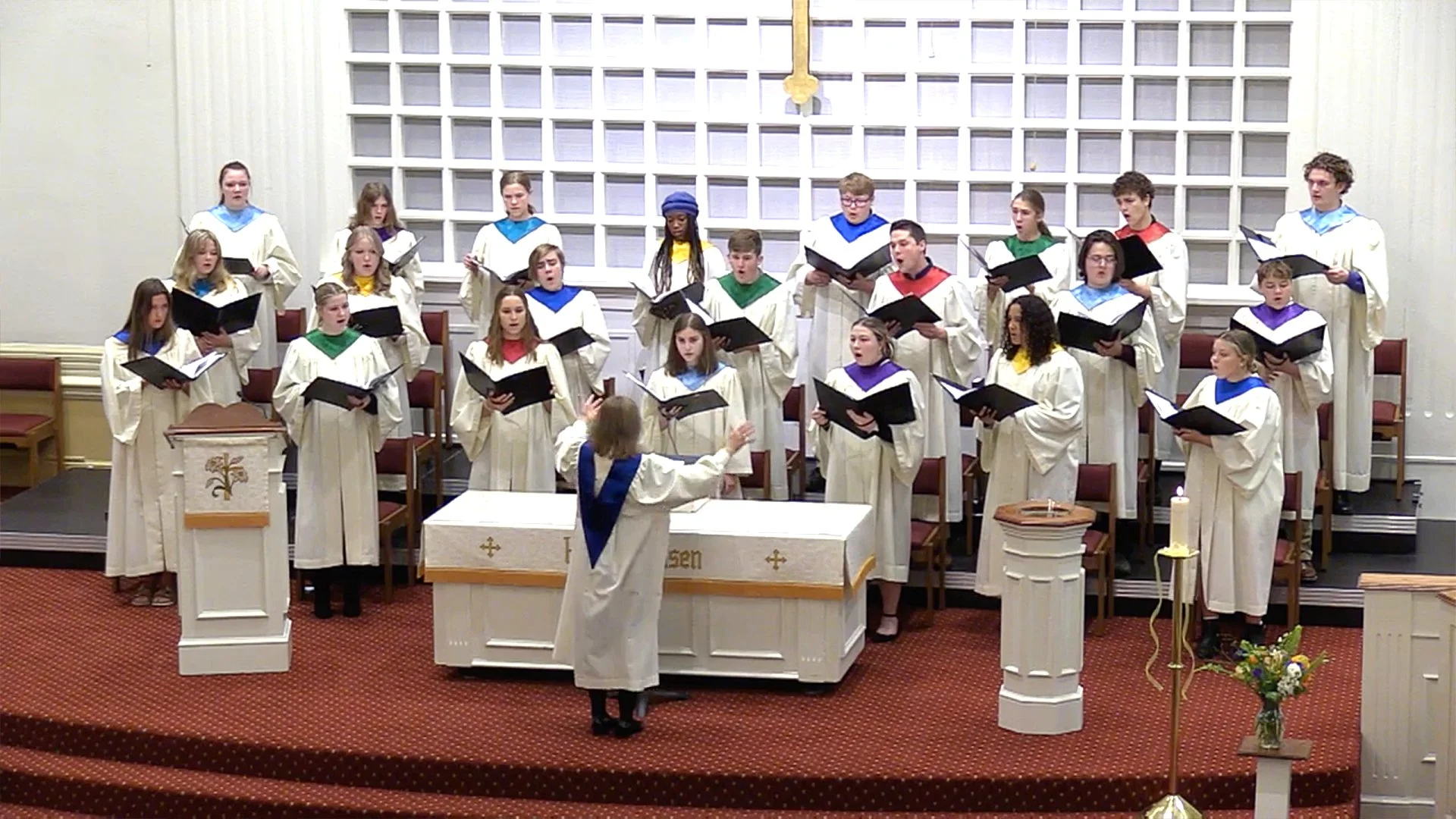Hymn of the Week: February 19, 2024
When I Survey the Wondrous Cross
Glory to God: 223
Text: Isaac Watts 1707
Music: Lowell Mason 1824
When I survey the wondrous cross
on which the Prince of glory died,
my richest gain I count but loss,
and pour contempt on all my pride.
Forbid it, Lord, that I should boast
save in the death of Christ, my God!
All the vain things that charm me most,
I sacrifice them through his blood.
See, from his head, his hands, his feet,
sorrow and love flow mingled down.
Did e'er such love and sorrow meet,
or thorns compose so rich a crown?
Were the whole realm of nature mine,
that were a present far too small.
Love so amazing, so divine,
demands my soul, my life, my all.
Hymn Texts: A Devotional
Today’s devotion comes to us from a book I have used over the past couple of years. Unrevealed Until Its Season by James C. Howell, published by Upper Room Books.
Ash Wednesday
When our Ash Wednesday service has ended, I linger in front of a mirror, not to inspect the quality of the pastor’s smudge above my eyes, but to ponder that I have been marked with the horror and hope of Jesus’ cross. No other hymn captures so thrillingly the paradox of this horror and hope as Isaac Watt’s “When I Survey the Wondrous Cross.” We “survey” the cross. We don’t just glance at it. We measure it carefully, size it up, and consider every angle.
Sanitized Imagery
Too often we sanitize the cross, preferring those of smooth wood or shiny metal. The original cross would have been made of olive wood, gnarled with human flesh nailed to it. Crucifixion was a gruesome, horrifyingly painful, public humiliation of criminals. Having seen plenty of crosses, the soldiers at the foot of Jesus’ cross didn’t “survey” this one. They didn’t know there was any reason to be attentive to this one. They could not see that this was God and that this was the start of a revolution of redemption. Jesus looked like any other dying, despised person – which was precisely what God wanted to achieve.
“See, from his head, his hands, his feet, sorrow, and love flow mingled down.” Just meditate on that for a minute or an hour, or the rest of your life. Blood and perspiration were mingled all over his ravaged body. After the piercing by the soldier’s cruel lance, blood and water flowed and mingled down.
Back then observers might have assumed it was some mingling of justice and tragedy. But no, it was sorrow and love mingled; God’s eternal fully manifested love for us mingled with sorrow over our brokenness, our waywardness, our confusion, and our mortality. Medieval paintings depict little angels flying around the cross with cups to catch the sorrow and love flowing down. It’s precious. It’s medicine. It’s life for the world.
“Did e’er . . . thorns compose so rich a crown?” At the coronation of Elizabeth II, the Archbishop of Canterbury placed St. Edward’s Crown on her head. It was heavy, forged of 22-karat gold, with 444 precious stones, including aquamarines, topazes, rubies, amethysts, and sapphires. She then knelt to receive the body and blood of our Lord. Did she ponder Jesus’ very different crown, it’s only ornamenting those harsh thorns gashing his forehead, scalp, and temples?
Just Another Artifact?
The cross isn’t just some religious artifact. It is much more than the mechanism God uses to get you into heaven once you’ve died. It fundamentally alters our values and how we live. If this is God, if the heart of God was fully manifest in this moment, if this is what God’s love actually looks like, then everything changes. “My richest gain, I count but loss” (echoing Paul’s words in Philippians 3:8). “Pour contempt on all my pride.” “Forbid it Lord that I should boast, save in the death of Christ” (echoing Paul’s other words in Galatians 6:14). “All vain things that charm me most, I sacrifice them.”
Indeed, the more we ponder the crucified Lord on the cross the less attached we are to the gadgets and baubles of this world. We give up things for Lent as a training exercise to make us ready to abandon whatever we cling to. It is as if someone at the foot of the cross were reading the book of Ecclesiastes aloud: “Vanity of vanity! All is vanity” (1:2). Indeed.
Casting aside vain fantasies, we don’t sing this hymn and then hurry back into our old life. We get caught up in Christ’s causes and become generous with our money and things. What is your offering to God? “Were the whole realm of nature mine” (an absurd idea, that the richest of the rich could have so much!), “that were an offering far too small.” No gift we could muster would be enough to begin to match Christ’s sacrifice gift to us.
So why then is my giving so measured, so chintzy? Why do I think of the life of faith as only somewhat important? Why is God the one I neglect until I’m in a pickle? The last words of the hymn get to the truth of things and stand as a stirring, unavoidable challenge to us, if we sing with any sincerity at all: “Love so amazing, so divine, demands my soul, my life, my all.” Not this compartment of my soul, or this segment of my life, or the part of me I don’t mind parting with. My soul. My life. My all.
Enjoy this piano arrangement written by a marvelous composer Joy Hire and I met this past summer in Montreat. Victor C. Johnson.







